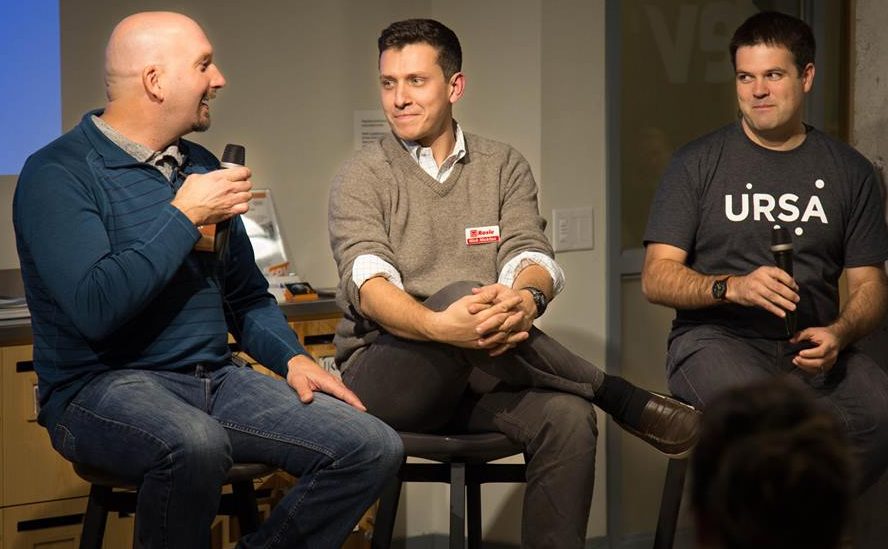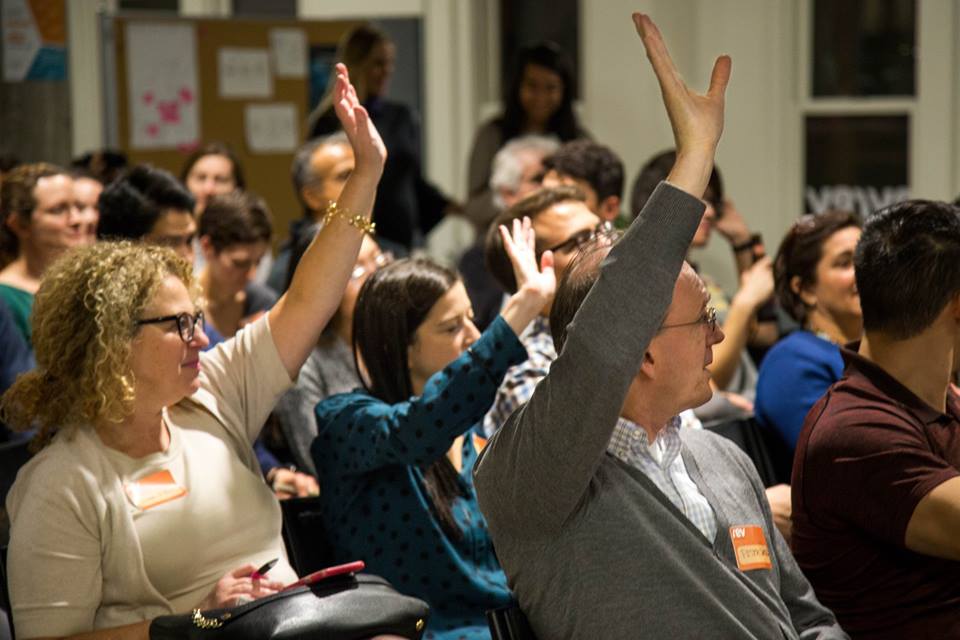
Growing Pains: Advice from Rev’s October Network Night
View event photo gallery and recorded live stream.
Growth. It’s something that every startup aspires to from its feverish early days, but once achieved, it surfaces a host of new challenges for founders to tackle. Rev member company CEOs shared their experiences in meeting this milestone at Rev’s October 24 networking night, with the theme “Growing Past 25 Employees.”
Entrepreneur in residence Brian Bauer moderated the evening’s panel, which represented three growing companies. GiveGab is a nonprofit giving platform founded in 2011 by CEO Charlie Mulligan MBA ’11. The startup now has 45 employees. Nick Nickitas MBA ’14, founder of Rosie, an e-commerce grocery delivery app, started in 2012 with 20 employees and now has 31. Ursa Space Systems CEO Adam Maher ’06, M.Eng. ’07 has taken his satellite radar imaging company from five to over 50 employees since 2014. The business leaders shared their biggest lessons learned from growing their startups.


Relinquishing control
“One of the hardest things is learning to let go,” said Maher of hiring people to perform tasks he used to do himself. Mulligan agreed. “When you first start, you’re everything,” he said, but advised startup founders in the audience to be honest with themselves from the beginning about their weaknesses so that they can align themselves with co-founders able to fill those gaps. Later, new hires can take gap-filling even farther, through both professional skills that they bring to the table and diverse worldviews.
At a certain point, your startup will grow to include multiple levels of management. It’s important to let managers know that they’re valued, according to Mulligan, because you want them to love the company just as much as you want customers to love your company. “As you grow you really have to reward and empower those second-level employees,” he said.


Founding team dynamics change
What may have started as a small group of friends pouring heart and soul into their startup is morphed by company growth into a larger, less personal, and more structured work environment. Some people, says Nickitas, are more suited to the frenzied pace of an early startup, people he describes as the “storming the beach” type, than to daily operations of a smoothly running company. “Consistency is demanded by your biggest clients,” he said. “Not everybody scales up with the company.”
As a team grows, a tone and style of interaction is adopted which forms the company’s culture. The founders agreed culture was highly important and something they purposefully work to foster to boost morale and retention. “The team has started to take on a culture of its own,” said Maher of Ursa Space Systems, whose employees have taken to referring to themselves as “Ursans.”
Human Resources isn’t something you can skip
When asked what aspect of his business keeps him up at night, Nickitas says, “It’s HR.” All three panelists described a period of expansion in which they developed policies and procedures as relationships within their companies changed. The panelists stressed the importance of holding everyone, including company founders, to the same standards as those standards are developed.
Gaining responsibility over the work lives of new employees presented founders with something else to think about. Nickitas concerns himself over the balance of his employees’ schedules while acknowledging “I’m the one destroying their work-life balance.” A self-described workaholic, he tries not to stay too late at the office so that his employees don’t think they all need to stay late too.
Join us at our next networking night, Demystifying Deep Tech, on November 15.
